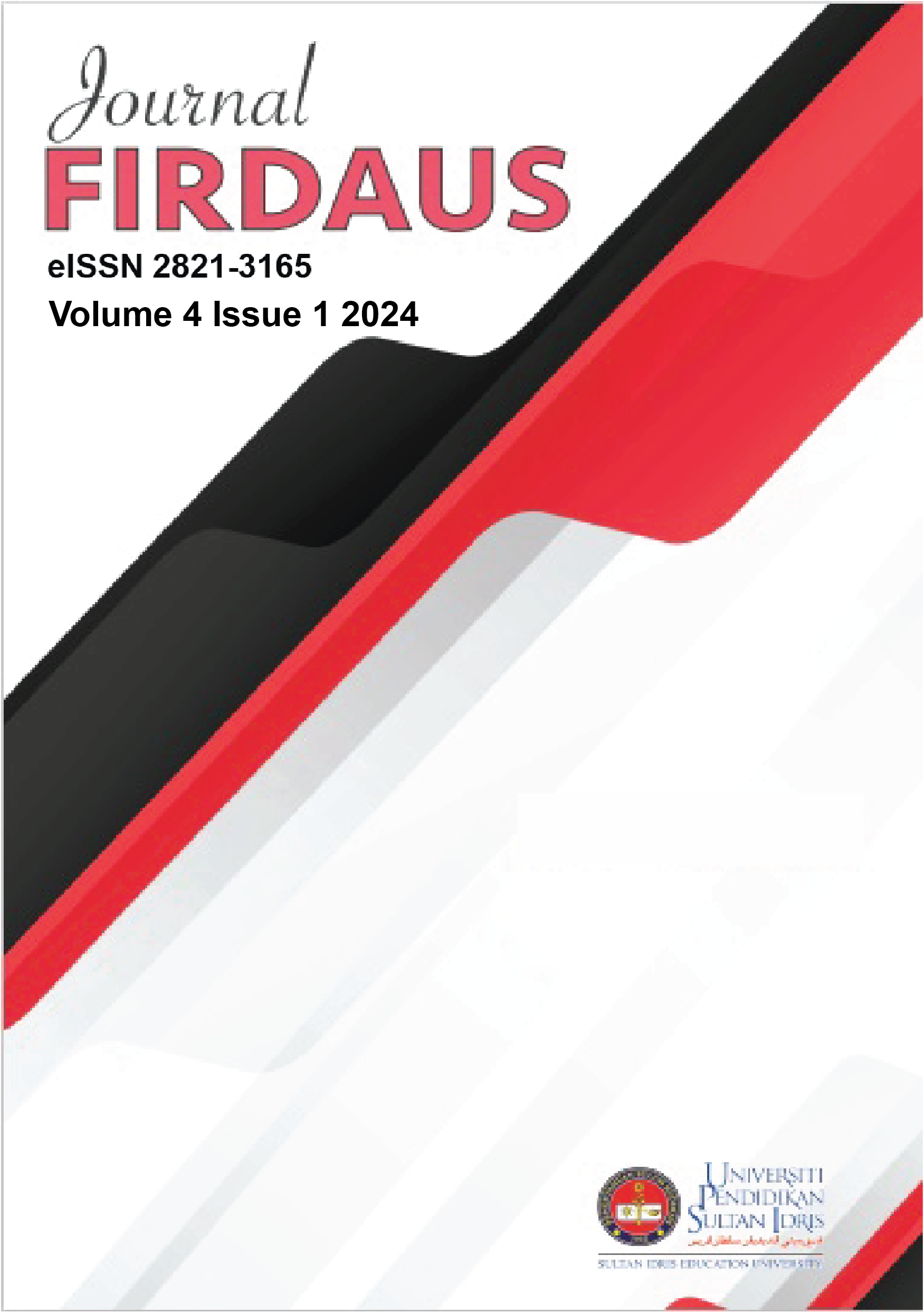Awareness and Attitude of Islamiyyah Schools of Inclusive Education in South West, Nigeria
DOI:
https://doi.org/10.37134/firdaus.vol4.1.3.2024Keywords:
Inclusive Education, Islamiyah School, Special Educational NeedsAbstract
This study assessed the Awareness and Attitude of Islamiyyah Schools on Inclusive Education in South West, Nigeria. This study adopted descriptive research design. The population consists of all the teachers and school leaders available in all Islamiyyah Schools in South west, Nigeria out of which five Islamiyyah Schools (30 across all states), 25 respondents (150 across all states) were selected as using disproportionate random sampling technique. The instruments used for collection of data is a self-constructed questionnaire titled "Questionnaire on Awareness and Attitude of Islamiyyah Schools on Inclusive Education in South west, Nigeria (QAAISIESWN). The study reveals a notable low level of awareness among Islamiyyah schools regarding inclusive education. The findings underscore a critical need for targeted awareness campaigns and policy reforms to align with the principles of inclusivity in among Muslim youth schools in the sub region. Here are recommendations addressing the identified issues within Islamic youth and special education needs within Islamiyyah Schools.
Downloads
References
Adams, D., Harris, A., & Jones, M. S. (2013). Teacher-Parent Collaboration for an Inclusive Classroom: Success for Every Child. Malaysian Online Journal of Educational Sciences, 2016(3), 58–72.
Allam, F. C., & Martin, M. M. (2021). Issues and Challenges in Special Education: a Qualitative Analysis From Teacher’S Perspective. Southeast Asia Early Childhood Journal, 10(1), 2021–2058. http://ejournal.upsi.edu.my/index.php/SAECJhttps://doi.org/10.37134/saecj.vol10.1.4.2021http://ejournal.upsi.edu.my/index.php/SAECJ
Ballhysa, N., & Flagler, M. (2019). A Teachers’ Perspective of Inclusive Education for Students With Special Needs in a Model Demonstration Project. Academicus International Scientific Journal, 3(1994), 121–133. https://doi.org/10.7336/academicus.2011.03.08
Bocharova, O. (2020). Inclusive education in Ukraine: Current status and problems in development. Edukacja Elementarna w Teorii i Praktyce, 15(3(57)), 81–93. https://doi.org/10.35765/eetp.2020.1557.06
Elnurianda, F., Fauzan, U., & Hamzah, S. H. (2018). The Implementation of Islamic Education Teaching at Inclusive Schools in Samarinda, East Kalimantan. Madania: Jurnal Kajian Keislaman, 22(2), 173. https://doi.org/10.29300/madania.v22i2.1273
FAREO, D. D. O. (2020). Prospects and Challenges of Inclusion of Children with Disabilities into Regular School Setting in Nigeria. Saudi Journal of Humanities and Social Sciences, 5(6), 269–273. https://doi.org/10.36348/sjhss.2020.v05i06.001
Ignacio, T. D., & Allit, K. J. N. (2023). ATTITUDES OF UNIVERSITY FACULTY TOWARD INCLUSION OF STUDENTS WITH SPECIAL EDUCATION NEEDS. 10(June), 1–11.
Mubaraq, Z., Kurniawan, F., Bahruddin, U., & Lailatus, S. (2021). Model Of Disability Learning in Islamic Education at Inclusive School Malang , Indonesia. 12(3), 5388–5392.
Napitupulu, D. S. (2020). Problems of Islamic Education and Solutions. International Conference of Contemporary Islamic Studies (INCONCIS)), December 2020, 1–14. https://www.researchgate.net/publication/349838065
national-education-policy-2013.pdf. (n.d.).
Olufunke, A. M., Oluremi, O. F., Olufunke, A. M., & Oluremi, O. F. (2014). Inclusive Education and the Development of Nigerian Communities Inclusive Education and the Development of Nigerian Communities. 3(1), 31–42. https://doi.org/10.6007/IJARPED/v3-i1/501
Pinnock, H. (2020). Inclusive education in Nigeria: policy progress weakened by financing. 48223.
Rose, R., Narayan, J., Matam, S., & Reddy Sambram, P. (2021). A comparison of provision and access to inclusive education for children with disabilities in a metropolitan city and a rural district in Telangana State, India. Education Sciences, 11(3). https://doi.org/10.3390/educsci11030111
Suleiman, L., & Isah, A. . (2022). Implementation of Inclusive Education in Nigerian Schools : Challenges and Way Forward. International Journal of Formal Education, 01(03), 32–41.
Tryfon, M., Anastasia, A., & Eleni, R. (2021). Parental perspectives on inclusive education for children with intellectual disabilities in Greece. International Journal of Developmental Disabilities, 67(6), 420–428. https://doi.org/10.1080/20473869.2019.1675429
USAID. (2007). Analysis of the Current Situation of Islamic Formal Junior Secondary Education in Indonesia. 3.
Wahyuningsih, S. (2016). Inclusive Education for Persons With Disabilities: the Islamic Perspective. QIJIS (Qudus International Journal of Islamic Studies), 4(1), 1–18.
Zaid, T. M. A., & Zein, I. M. (2016). Stages of development in Arabic philosophical nomenclature: Emergence, progression and stability. Intellectual Discourse, 24(2), 3–29.
Zulkifli, H., Rashid, S. M. M., Mohamed, S., Toran, H., Raus, N. M., & Suratman, M. N. (2022). Challenges and Elements Needed for Children with Learning Disabilities in Teaching and Learning the Quran. Children, 9(10), 1–13. https://doi.org/10.3390/children9101469
Downloads
Published
How to Cite
Issue
Section
License
Copyright (c) 2024 Isiaq Yahya, Khadijah Olaniyan-Shobowale, Abdul-Ganiy I.S Owoyale, Abdul-Rafiu Jamiu, Hajarah Sanni

This work is licensed under a Creative Commons Attribution-NonCommercial-ShareAlike 4.0 International License.





